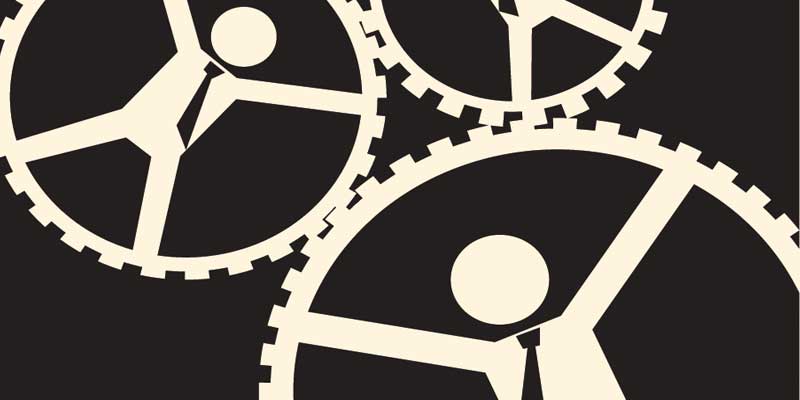For today’s employee, being part of something special and making a difference in the world, is much more important than the rewards sought by yesterday’s “me” generation. The new breed of employee wants to work for an organization that they can feel proud of––one that contributes back to society; an organization that has values and… [Read More]
Same Old, Same Old
Many people find routines irritating because they stifle creativity and create inflexibility, but they can also be time-saving devices that minimize mistakes. For example, doctors use diagnostic routines for their patients, and airline pilots go through checklists prior to takeoff. Edward de Bono explains in Six Action Shoes that “in some ways routines provide freedom…. [Read More]
The Destructive Force of Fear
One of the most destructive forces in a company is caused by fear. Just as pollution damages the environment, fear is toxic to companies. Fear destroys creativity, shatters loyalty, and discourages people who want to “do what’s right.” While some managers use fear to stop an activity, this tactic never inspires anyone to perform at… [Read More]
13 Ways to Destroy Creativity and Innovation
Do You Destroy Creativity and Innovation? 1. Creativity Killer ➤ Keeping people in the dark “It’s just not right. I can’t tell you why, but I just don’t like it.” “I know exactly what I want, but can’t explain it. When I see it, though, I’ll tell you.” 2. Creativity Killer ➤ Dictatorships “Here’s my idea and how to… [Read More]
Fallacies About Change
There are 7 fallacies about change. They are: “The best way to address tomorrow’s problems is to see how they’ve been handled in the past.” People like to define future events based on history. The problem with that approach is that the future contains too many events for which there are no precedents. “The best… [Read More]
Change . . . Why Bother?
Change…Why Bother? One of the reasons why many change management efforts fail is that the process is often misunderstood—leading to solutions that exacerbate rather than solve problems. Until change management is viewed as a continual process requiring commitment, learning, and understanding, it will be difficult for managers to lead their organizations into the future. 7… [Read More]
9 Rules For a Great Recognition Program
As a general rule of thumb, recognition programs should meet the following criteria: Be simple enough that everyone understands how, why, and when people will be rewarded. I’m always amused to hear that an organization launched an Incentive Program that no one can figure out. Communicate continuously. I know an individual who won an award… [Read More]
The Employee Commitment Cube
What’s the Temperature of Your Workforce? The stages of employee satisfaction, ranging from commitment to apathy, are as follows: Committed. Every organization wants to strive for committed employees. These individuals have moved beyond loyalty. They are so deeply moved by the organization’s values and purpose that they continually look for creative and innovative new ways… [Read More]












